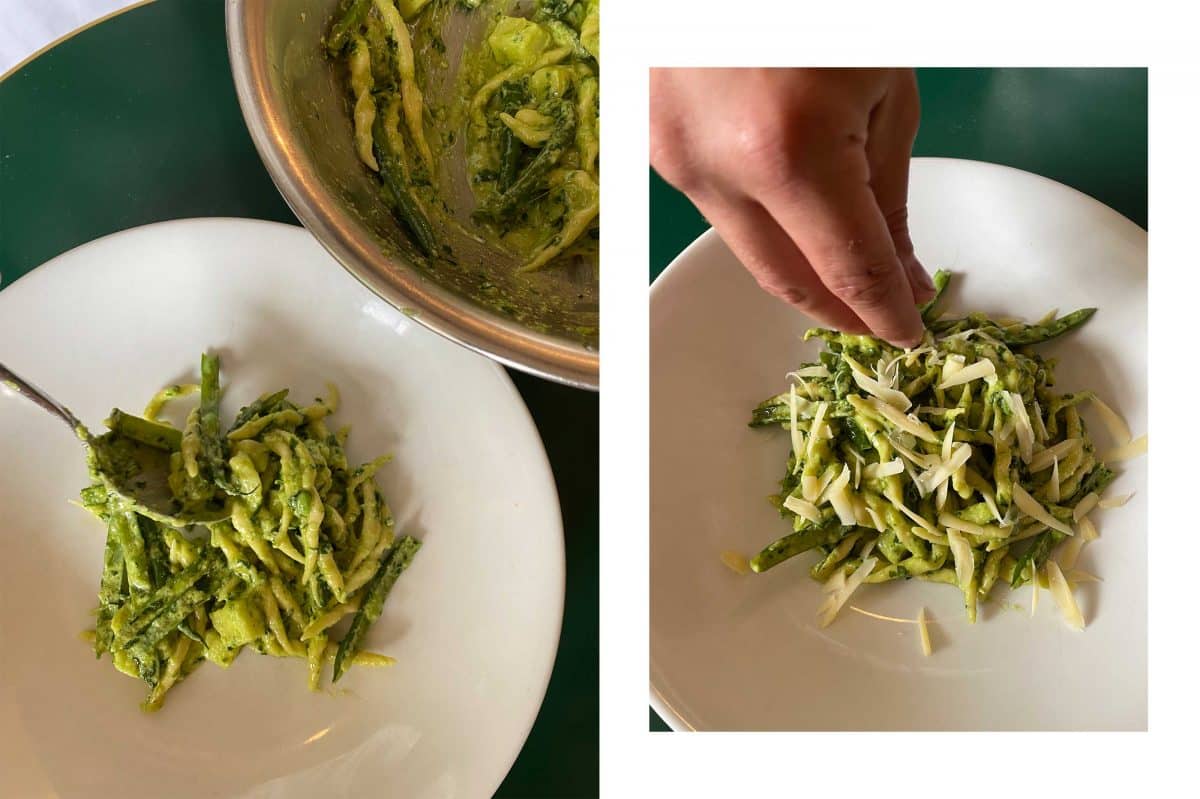
It's the beginning of a New Year, that time when we make a lot of promises (some simple, some batshit). Maybe you've vowed to keep a regular journal? It's a smart idea. As Joan Didion once advised, it's important to keep on "nodding terms with the people we used to be, whether we find them attractive company or not". But where to start? Below find 7 tips to help you make a habit of journaling long after the New Year.
Consider a different format
A paper journal is held up as the gold standard but it doesn't work for everyone. People recommend handwriting as it forces you to slow down but this can be off-putting, especially if you're time poor. As such, there are alternative journaling formats that are equally valid and effective. Jotting down your thoughts in the Notes app or in a Google Doc on your laptop is another option, given most of us type quicker than we can write (and are always on our devices). Digital archiver Mindy Seu told RUSSH she journals in a spreadsheet and I know people who have created private Instagram accounts and type their entries in the captions. You can also keep a scrapbook or visual diary and apps like Journify and Murmur allow you to record voice notes as diary entries.
Pick a journal
Some people will only journal in a Moleskin. Others prefer a specific paper stock. There was the whole bullet-journaling movement and you can walk into any good stationery story and pick up a diary with an assortment of prompts. I know a person who exclusively journals on graph paper (sicko). My point is any tool that will make the journaling experience more pleasurable is a good thing, as it's an incentive to keep up the habit. I received a fountain pen on my birthday and it's increased the likeliness that I'll write.
The only caveat here is to not let the tools become the only conditions under which you can write. If you can only journal with a fountain pen that's another barrier between you and the page. Getting started should be your biggest priority.
Set yourself a realistic schedule (and stick to it)
Now to build a habit. It's important to be realistic about what you can manage as you get started. While we'd all love to journal daily, once or twice a week is more manageable. And if you break your streak don't get bogged down in guilt, pick yourself up and begin again. When you get into a rhythm, you can consider increasing the frequency.
Time of day matters too. There's a lot of talk about writing first thing in the morning: it can help you get in touch with your thoughts, prepare you for the day and build self-awareness. However, I don't always have a lot to say in the morning. I find my mind is busiest at night, which is also a time when there's less distractions. That's when I journal. But maybe there's another time that's more suitable for you?
Build it into your routine
There's a tendency to journal only when we're on holiday or experiencing something exciting, however the true benefits of journaling are harnessed in times of stress, anxiety, and when you least feel like it. It's why you should treat it as a ritual not a hobby. To cement new habits let them piggyback on your longstanding daily rituals. Journal as your drink your morning coffee, on the train to work or after you've completed your skincare routine.
Persistence over perfection
Your entries aren't going to always be beautiful or funny or entertaining (more on that below). This is where my earlier caveat about perfect conditions comes into play – and it's also why I'm not a crazy fan of bullet journals. To be consistent, perfection has to take a backseat. There will be days when your writing inevitably looks like a Neanderthal's scrawl, you will not always be enlightened or exceptionally observant. Sometimes all you'll get out is a shopping list of your activities and the brand of sweet treat you ate at 3pm. All completely fine. If you find you have nothing to say, gratitude is a great place to begin (boring but true).
Write like everyone is dead
It's solid advice for any kind of writing. The moment you begin to write with other people's feelings or eyes in mind, your writing becomes self-conscious and backs away from the truth. If privacy is an issue, find a secure place to store your journal. Otherwise, this is where you might opt for your phone or laptop as you can guard your entries with a password. Imagine being 60 and returning to your old journals only to find watered-down truths and flattery! Sad.
Begin analysis
Once you get past recounts of your day and emotions, when you no longer begin each entry with "I feel", is how you know you're getting somewhere good. Helen Garner once built a bonfire for all her old journals after she flicked through to find an entry about Gough Whitlam's dismissal and learned she never mentioned it. "I was soon so bored with my younger self and her droning sentimental concerns that there was nothing for it" and so she tossed her journals into the flame without regret. Good luck and godspeed.



